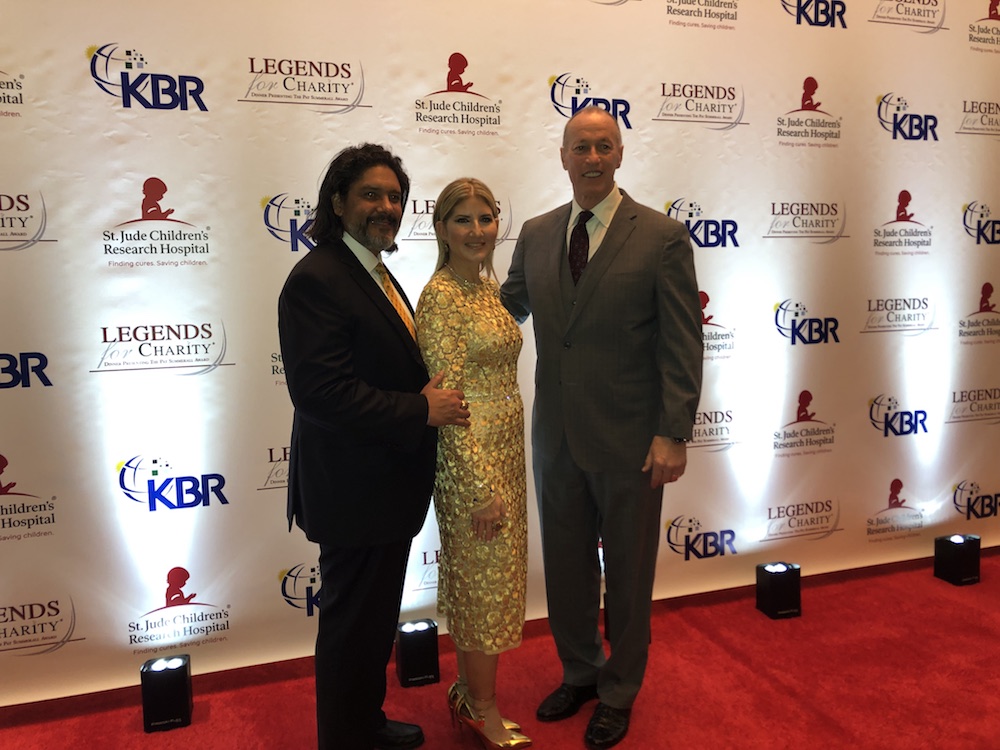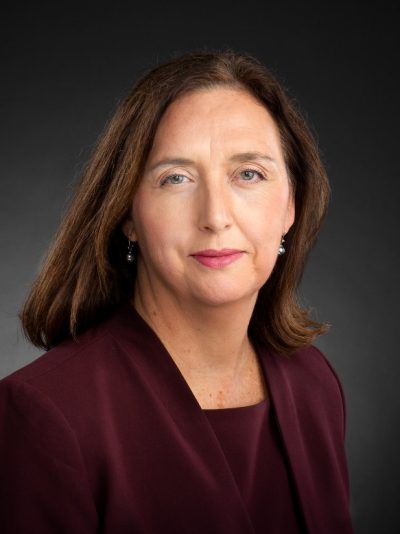Lopez Lens: Children’s Cancer Research
Marile Lopez is part of an advocacy group mandating that cancer therapies for adults also be studied in children.


September is Childhood Cancer Awareness Month, a time when we celebrate the advances in childhood cancer treatment and care. And this year, we have even more reason to be hopeful and to fight harder: A new law has passed that medical professionals say could win the battle for countless children. It’s an FDA mandate that states all new cancer therapies for adults must also be studied in children.

This is a law that was enacted three years ago, when I personally went to Washington, DC with my husband Jorge Luis Lopez and we advocated for new treatments and cures on behalf of children battling cancer. We were among the many children’s health advocates, volunteers, patients and their families on Capitol Hill seeking a new legislation. Just two weeks ago, on August 18, 2020 amidst the COVID-19 and all that is happening in our world, the bi-partisan Research to Accelerate Cures and Equity (RACE) For Children Act-was implemented
It’s my blessing of five healthy children that has inspired my husband and I to work tirelessly with the American Cancer Society, Nicklaus Children’s Hospital Foundation and St. Jude Children’s Research Hospital.

I sat down with Elizabeth Fox, MD SR Vice-President of Clinical Trials at St. Jude’s Children’s Research Hospital to discuss how this new law will affect the life of children with cancer, the effects of the new clinical trials that now children will be able to participate in and how to better understand what lies ahead.
Marile Lopez: What will these laws do immediately?
Elizabeth Fox, MD: The RACE for Children Act amends the Pediatric Research Equity Act (PREA) to require evaluation of new molecularly targeted anti-cancer drugs in children with cancer if the molecular target is relevant to the growth or progression of cancer.
After Aug. 18, 2020, applications for anti-cancer drugs will no longer be based on indication such as lung cancer or breast cancer, rather the application for approval by the FDA will be based on the how the drug works, that is, the molecular mechanism of action of the drug. It eliminates a prior loop-hole that exempted testing a drug if the drug was being developed for treatment of a type of cancer, such as lung cancer or breast cancer, that do not occur in children.
ML: Why is there controversy?
EF: Earlier laboratory testing of new drug using pediatric cancer models will be critical. It is unclear how this will be accomplished or if the models will predict if the drug will be effective in children.
ML: What is the long-term effect?
EF: The hope is to identify new therapies that cure cancer in children with fewer short term and long-term side effects.
ML: What does the community say?
EF: The RACE for Children act dramatically alter the landscape for pediatric cancer drug development by ensuring that new drugs are evaluated in children. It will not solve all the obstacles to pediatric cancer drug development, but it is an important advance for children with cancer. We recognize this will require global collaborations. There is much work to be done, but this month’s achievement of the full implementation of the RACE Act is something we all can celebrate-this is a victory for all children.

Marile Lopez is the Chief Financial Officer at Jorge Luis Lopez Law Firm, a governmental affairs firm representing Municipal Governments, Florida 100 and Fortune 500 companies at the federal, state and local levels. As CFO, she manages the financial reporting, income taxes, account receivable, drafting of contracts, and investments for the firm. Prior to joining the firm in 2006, Mrs. Lopez founded and was creative director for Maria Elena Headpieces, a successful million dollar bridal accessory company which designs, manufactures, and sells products to high-end international wedding boutiques.
Mrs. Lopez also dedicates time to serve the community through leadership roles in a number of organizations. She is Chair of St. Jude Children’s Research Hospital’s South Florida Executive Committee, whose initial focus is to host the 2020 Legends for Charity Dinner (NFL Super Bowl LIV). She is also Chair of FIU’s Steven J. Green School of International and Public Affairs Dean’s Advisory Council, where she is leading her 2nd — multi-million dollar capital campaign as part of “Next Horizon: The Campaign for FIU”. She also serves on the board of Chapman Partnership, Boys and Girls Club of Miami-Dade, FIU President’s Council, and the American Red Cross. She has served as Chair of Miami Children’s Hospital (MCH) Foundation, on the Board of Nicklaus Children’s Hospital and the Miami Children’s Health System Board, as well as on the Board of American Cancer Society’s Miami-Dade Unit.
Marile Lopez and her husband, Jorge Luis Lopez, Esq., are widely known for their philanthropic work in our South Florida community. They have received numerous awards for their exceeding dedication, including the 2017 Power Couple by Big Brothers Big Sisters of Miami, 2015 American Red Cross Philanthropy Volunteer of the Year Award, the 2014 Charles “Bebe” Rebozo Humanitarian Award from the Boys & Girls Club of Miami-Dade, the 2013 James W. McLamore Volunteer of the Year Award for Outstanding Volunteer Service by the Association of Fundraising Professionals.
Marile received in 2018 the MDC Parks Foundation in the Company of Women Award, the Take a Walk in her Shoes Award by Chapman Partnership, and the Woman of the Year Award by Miami Women Who Rock. In 2017, she received the Philanthropy Award by Fairchild Botanical Gardens, and in 2016, she was the recipient of Torch Award – Community Leadership Professional Achievement Award by Florida International University, the American Red Cross Spectrum Award, and the Women of Substance & Style Award by Buoniconti Fund. In 2015, Marile received the Woman of Distinction and Caring by Plaza Health Network, and in 2014, the Women of Faith with the Virtue of Charity Award from the Archdiocese of Miami, Mujeres Giving Back Treasure by The Woman’s Fund, Women Who Have Influenced the Community with Outstanding Charitable Causes by Neiman Marcus-Coral Gables, Miracle Maker by Big Brothers Big Sisters, and the Hispanic Leadership Philanthropy Award by the South Florida Hispanic Chamber of Commerce. Marile was also the recipient of the Inner Circle of 12 recognition from the American Cancer Society in 2013, and St. Jude Honors in 2012.
Mrs. Lopez received her Master’s degree in Business Administration from the University of Phoenix, Bachelor’s degree in Health Services Administration from Florida International University, and Associate’s degree from Miami-Dade College.
Marile and Jorge Luis Lopez, Esq., have five children: AR, Carli, Annia, Saramelia and Luis Jorge. They all reside in Coconut Grove, Flo


